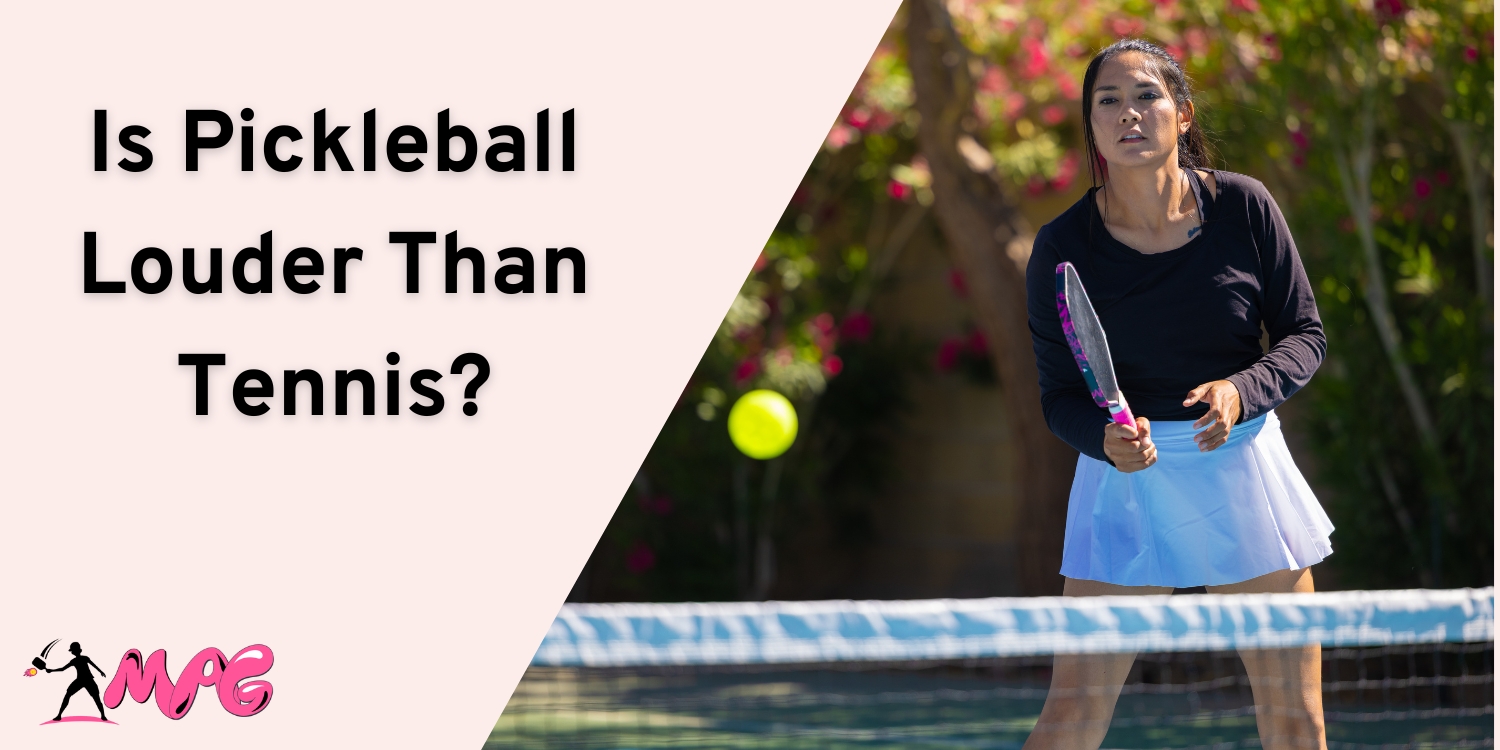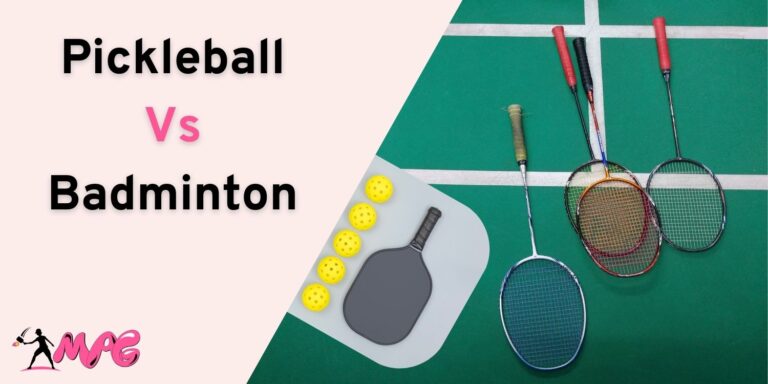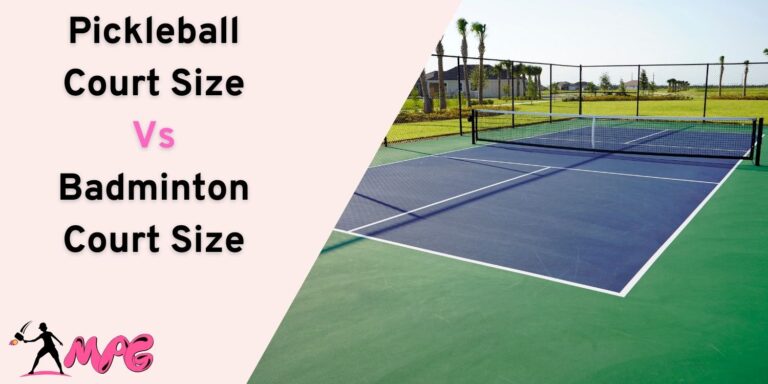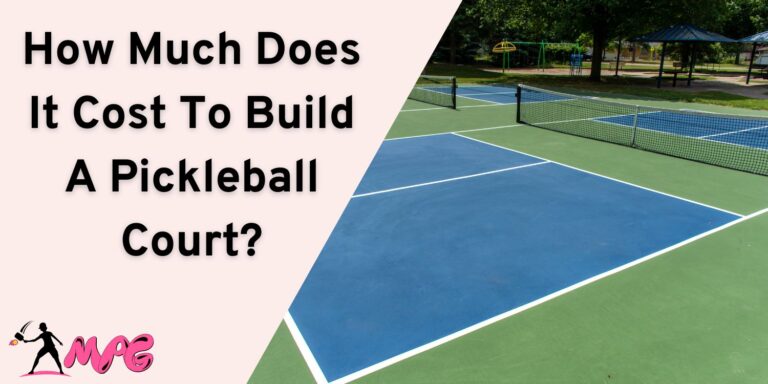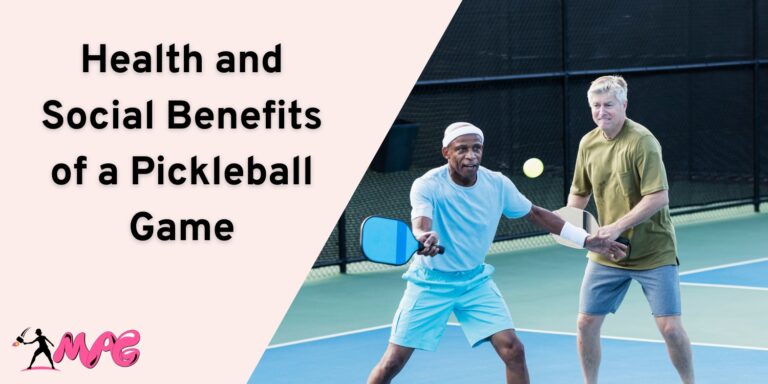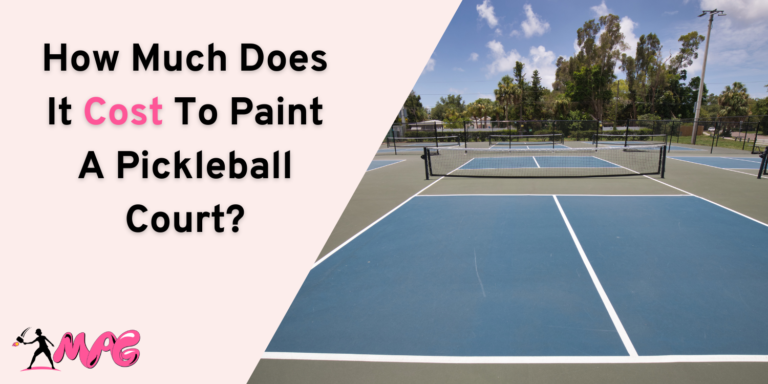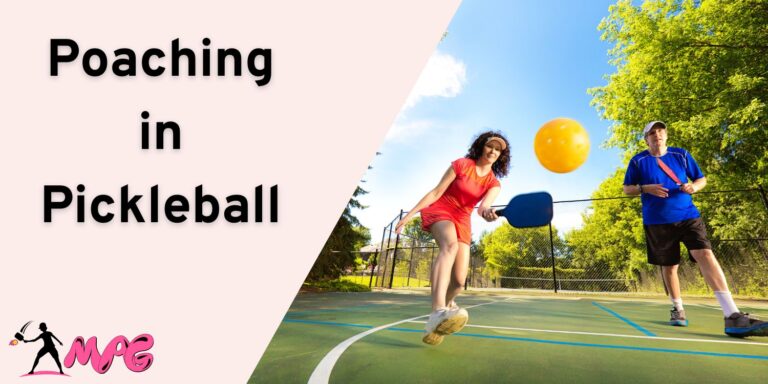Is Pickleball Louder Than Tennis? – What’s The Solution?
One of the few horrors of building a pickleball court is getting through all the “due diligence” and racking up a multitude of permits, some of which astoundingly enough seem quite strange such as a noise compliance permit.
This can get a bit of a nuisance considering the fact that there isn’t much information floating around since Pickleball is a fairly new sport in contrast to other renowned games such as tennis even though it shares plenty of similarities with it.
Subsequently, this gives rise to queries that concern noise thresholds like “Is pickleball louder than tennis?” Or is it the other way around? For a more profound comprehension, scroll down to know more.
Exploring The Noise Threshold of Pickleball
To some extent, it’s fairly safe to assume that pickleball takes the lead when compared to tennis which happens to be a much more muffled game even though it’s pretty competitive!
Here are some of the attributes backing my claim.
1. Squeaky Asphalt
Have you ever been on a pickleball court? It’s dense and is made from concrete or asphalt material and we all know how noisy it can get when you are maneuvering over a court while wearing joggers or sports shoes, in fact, it outranks even basketball considering the fact how frequently you have to move on it while chasing the wiffle ball.
Subsequently, it doesn’t take too long for the squeaking noise to grow over someone who is either spectating or sitting across the park while reading a book or simply taking the steam off from a long day of work.
2. Noisy Contacts
Speaking of sounds eventually growing on you, the wiffle ball used in Pickleball is made from stiff plastic which obviously makes a “clack” sound even if hit with slight force. Obviously, the asphalt surface amplifies the sound to a great degree.
Since tennis courts are pretty much made from clay material with artificial grass, they can absorb ball momentum much more easily so the chances of you hearing the sound even while sitting on a bench while spectating is pretty much little to none.
And don’t get me started on tennis balls since they are also made from synthetic rubber with soft felt which is the perfect recipe for enjoying a game while barely making a noise.
3. The Pound Of Paddle
Most of the paddles used in pickleball are either made from graphite or light wood which when it comes in contact with the plastic ball increases the noise aspect by tenfold.
Tennis racquets, on the other hand, fall short of producing any noise output due to the strings used when hitting a ball, in fact, the only noise you would hear is a vibration of the strings or the airflow in between them.
4. Fast-Paced Rallies
Even though sessions of pickleball are way too toned down in contrast to Tennis, you still have to spend plenty of time in rallies which means “moans” and “sighs” would be pretty apparent which evidently adds a drastic increase in the noise output.
Now combine multiple rallies with the squeaking sound of your shoes and you have your answer right there stating pickleball is indeed way louder when placed side by side with a tennis session.
So How Loud Is Pickleball in Decibels?
If you are looking for a precise answer, keeping all the notable attributes in mind, Pickleball noise output easily crosses the 70 Db threshold especially when played in an outdoor environment.
If the same session is played indoors in a walled and controlled area, the noise eventually gets trapped causing an echo effect since sound has limited space to dissipate, so expect around 100 decibels of sound in the best-case scenario.
When compared to a tennis game, the total noise output is around 30-40 decibels at best even if it’s played in close quarters.
Obviously, these indoor tests are performed in a standard court rather than specialized soundproof courts where the noise ratio is artificially controlled.
Bottom Line
In conclusion, sports might have aggressive play styles to offer but would still produce considerably lower sound output, in other words, the sound threshold is completely irrelevant to the nature of a game.
Meanwhile, while this esoteric information might sound trivial, it can come in handy in situations where you want to acquire a permit for the local planning department in your area.
On the flip side, the loud sound propagation can be easily controlled through the utilization of rubberized paddles and better quality wiffle balls and if you still want to tone it down a little bit, make sure you play indoors with soundproof walls which will make the whole session muffled to great extents.
Nevertheless, feel free to bookmark and share this article with your peers, and let me know what’s on your mind in the comment section below.

